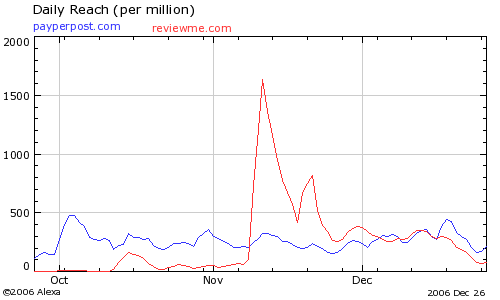Smart pricing is a constant source of confusion and frustration for AdSense publishers. Although no one except Google know the details of smart pricing, this FAQ attempts to distill the AdSense community’s best guesses at what is going on. I’ll try to keep this post updated with the latest information.
What is Smart Pricing?
Smart pricing is an attempt by Google to ensure that AdWords advertisers are getting a good Return On Investment for their advertising. Usually when an advertiser places an add the y want whoever clicked that ad to take some action such as buy a product or sign up for a newsletter. Google tries to determine if a user from your site is likely to result in the desired action or not. If not, they lower the price of click from your site. Here is an explanation from Google (written from an advertisers point of view):
Google’s smart pricing feature automatically adjusts the cost of a keyword-targeted content click based on its effectiveness compared to a search click. So if our data shows that a click from a content page is less likely to turn into actionable business results — such as online sales, registrations, phone calls, or newsletter signups — we reduce the price you pay for that click
What Factors Effect Smart Pricing?
That’s difficult to say. Google gathers lots and lots of data, and they could be using any of it to determine how much smart pricing to apply. They did say this much: “We take into account many factors such as what keywords or concepts triggered the ad, as well as the type of site on which the ad was served.”
Does Smart Pricing Effect Just One Site or an Entire Account?
It appears that smart pricing effects the whole account. All of the sites on a single account are equally smartpriced. See One Poorly Converting Site Can “Smart Price” an Entire AdSense Account by JenSense for details.
How Do I Know if I Have Been Smart Priced?
There is no way to tell for sure. If you see a sudden drop in the CPC values you get over you entire account, this may indicate you were smart priced. However, a drop in earning doesn’t necessarily mean you been smart priced. Here are some other reasons why your earnings may vary.
Is Smart Pricing Permanent?
No, it’s not. Google readjusts the amount of smart pricing on an account once a week.
How Can I Get Rid of the Effects of Smart Pricing?
The type of traffic you get can effect smart pricing. Try to make sure the traffic on your site is in “buy” mode.
For example, take two different sites about digital cameras. If you have a site about photography tips, people are not really looking to buy cameras. They may be mildly interested in checking out new camera models, so they may click on ads, but they are really not ready to buy. However if you have a site about digital camera reviews, many of the people on the site will be actively looking to buy a camera. When they click an ad, there is a good chance they will be buying. The photography tip site may be smart priced because the traffic just doesn’t convert as well as the review site.
Also keep in mind that accidental clicks will never convert well. If a lot of your click come from visitors click on ads because of some “tricky” placement of ads on your site, you will likely be smart priced.
I Noticed a Drop in My Average CPC. Was I Smart Priced
Not necessarily. There are many reasons why average CPC can drop. Advertisers could be lowering their bids, a major advertiser in you niche may have dropped out of a bidding war, some CPCs vary seasonally, an ad might be displaying on your site that has great CTR but lower CPC than the average in the niche. With so many variances in CPC, it’s hard to tell what is really going on.
Please comment on this entry to let me know what is missing or incorrect.
 Today MIVA launched a new self service advertising platform for publishers call MIVA Monetization Center (or MIVA MC).
Today MIVA launched a new self service advertising platform for publishers call MIVA Monetization Center (or MIVA MC).